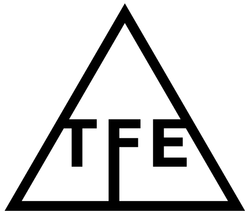|
January is the quintessential time to make changes in our lives - those all too-familiar New Year's Resolutions. For millions of people, that means working to achieve health and fitness goals throughout the following year. However, most well-intentioned resolutioners start with a bang and end with a fizzle. In fact, Time Magazine states that an estimated 80% of people quit their resolutions by February, and only 8% actually stick it out to the end of the year. And, well it's that time of year again (end of January) and statistically, many of you may have already fallen short of your goals.
Why is it so difficult to change? Why can't we just, well- simply DO IT?! As human beings we have the tendency to take the path of least resistance, which is usually the anthesis of change and the enemy of success. While there are many reasons we may fall back into our old ways we can boil it down –at least in part– to willpower. Or as is the case in most of us, the LACK thereof. As endurance athletes, we spend hundreds (if not thousands) of hours preparing physically for a specific event, or series of events. We work tirelessly to improve our speed, endurance, strength, and technique for our respective discipline (or disciplines in the case of triathletes). Many resort to spending thousands of dollars on gear, coaching, recovery tools, performance nutrition, and a host of other expenditures in hopes to improve performance just a little bit. However, there is one glaring gap that many athletes - or even weekend warriors - neglect: the mental side of performance.
With the New Year upon us, and the Christmas season just concluding, it's a great time to reflect on 2018 and all the positive changes made during the calendar year. For me, my business grew by almost 15%, I posted a PR returning to Ironman triathlon after a 4 year hiatus, and qualified for the Boston Marathon on a last-minute whim. I had clients get into wedding-shape, runners that completed life-long race goals, and triathletes who became first-time Ironmen. And while all those accomplishments are incredible in their own right, nothing compares to the birth of my son. With the arrival of this 7 pound little wonder, my entire outlook on life has shifted in an almost indescribable way. Everyone said that would happen. That I’d see the world just a little bit differently. From how I would spend my time, to my goals in life, to my triathlon training, etc. They said it would all change. And they were right!
Recently I saw a news story which cited an interesting study. Researchers found that taking vacations increases life expectancy by 37%. While many of you may think that’s a no-brainer, many still struggle to maintain that coveted work-life balance. Here in the DC Metro Area is ground zero for type-A go getters.
These high achievers excel in their professional lives, working 60, 70, and 80 hour work weeks, thriving in the process. In fact, I know several people that forgo that vacation time each year due to their hectic jobs. They trade in time at the beach for a few more hours at at the office, a last-minute client meeting or to catch up on paperwork, proposals, or emails. During our last phone call prior to her first Ironman, I asked Marnie, my client to share with me her biggest take-away in her Ironman journey. She restated to me something I’d told her when she first decided to race Ironman; that all the training, the nutrition, the recovery, the strength training, was all part of the process of becoming an Ironman. Marnie had realized that becoming Ironman isn’t an outcome, it’s a process.
I recently had the incredible opportunity to meet with some of the best coaches in the fitness industry at the Endurance Coaching Summit in Boulder, Co. earlier this month. It was a two and a half days packed full of incredible information about everything endurance fitness related; from cutting edge technology, to the latest and greatest from the world of performance nutrition, to what the best in the business do to motivate, inspire, and develop their athletes. Of course, the goal of the entire conference (and every coach and fitness professional there) was to find out how best to improve performance in their athletes. Seasoned athletes and weekend warriors alike want to get the best out of themselves and perform up to their potential, whether that means qualifying for the world championships, or simply giving their best effort in the gym twice a week. We all want to see positive results. We want to see improvement.
|

